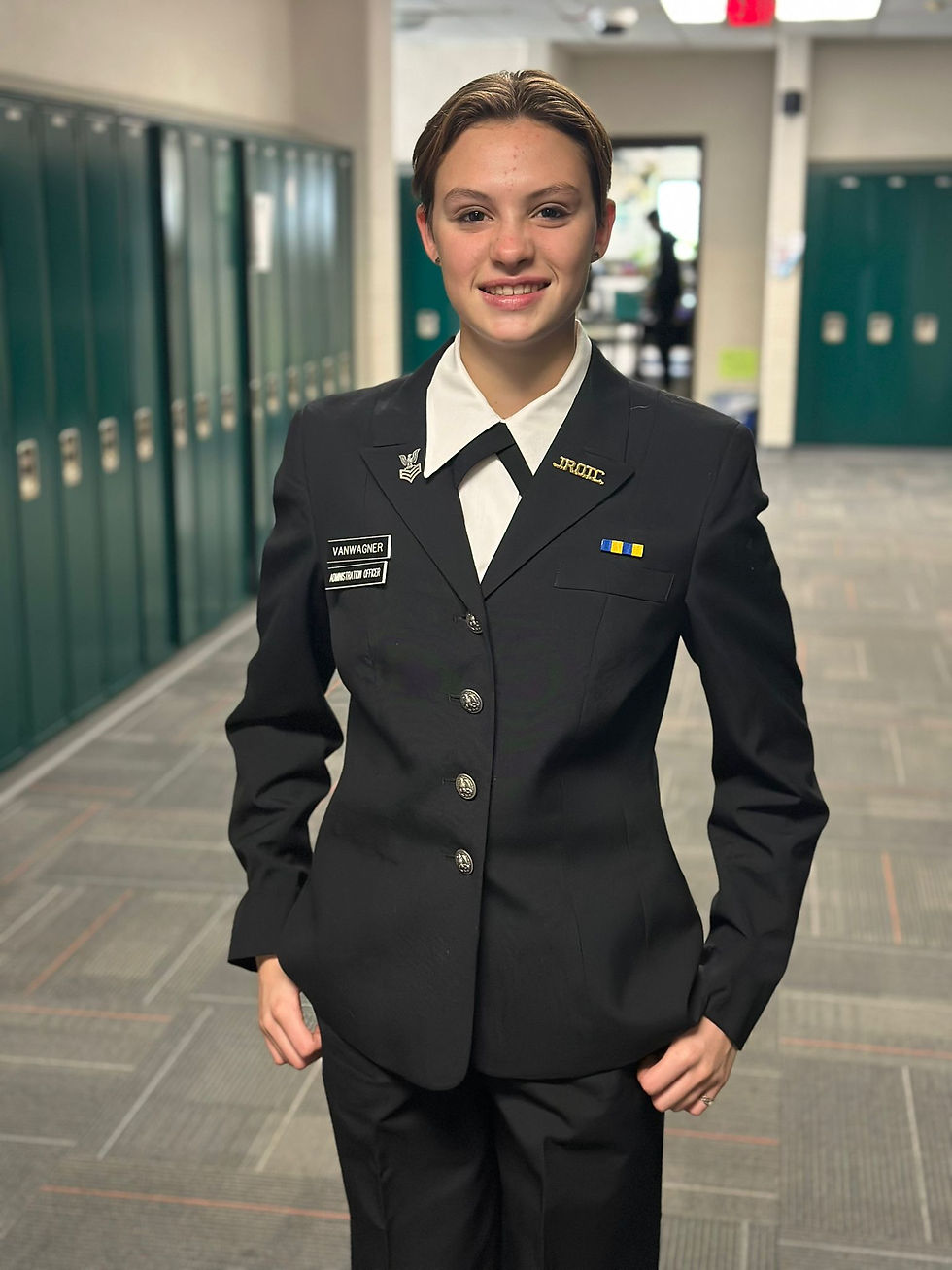KHS Senior Takes Third Place in Voice of Democracy Competition
- Kingsley Area Schools

- Nov 14, 2024
- 3 min read
Updated: Nov 15, 2024

Congratulations to KHS senior Mara Van Wagner, who recently took third place in the VFW Post 2780 Voice of Democracy essay competition! The post received 38 entries.
Mara will receive a certificate, plaque, and scholarship award at a special ceremony in the new year. Her essay will also advance to the next level of the nationwide competition.
Established in 1947, the VFW's Voice of Democracy competition tasks high school students with composing an essay that answers or reflects on a patriotic theme.
This year's theme is "Is America Today Our Forefather's Vision?"
Every year, regional and national finalists are awarded more than $1 million in scholarship prize money. The national first prize winner earns a $35,000 scholarship while other scholarships range for $1,000-21,000.
In her essay, Mara reflects on the founding father's ideals of hope, which she argues has remained a cornerstone of our democracy to this day.
“Is America Today our Forefathers’ Vision?”
By Mara Van Wagner
“Is America today our forefathers’ vision,” is a question that is rather difficult to answer. To choose a yes or no stance on this question demands a look back at before we were even our own nation. When our founding fathers started fighting for independence, the only idea in their minds was that they didn’t want us to be like the power we were separating from. They knew they wanted many people in charge so that we didn’t end up with a tyrant running our newly formed country, and they knew that some powers had to be separated. Our forefathers were forward-thinking men who wanted to leave a legacy and guidelines for a future where the highest powers would always be like them.
The question posed is hard to answer because it’s a trick question. Those who laid out the ideals for our country couldn’t have guessed what our world would be like today. While these men were visionaries, they were also slave owners, treated women like property, and were upper-class and unaware of the lives of impoverished people. To answer the question simply, no, America today is not what the forefathers envisioned or set up, but mostly because the entire world has changed drastically over the last two centuries.
The early days of America were rough. The founders, none of whom had led anything larger than an army before, were suddenly tasked with creating a new nation; however, they had a clear vision for the foundation upon which America would be built. Drawing from the failings of the British governing system, the founding fathers were determined to avoid replicating those mistakes in our new government. One prominent failing that was eventually addressed in our Constitution was the separation of church and state. The colonists had witnessed the corruption of the church and did not want the citizens of America to endure similar struggles. As a result, in America, we have the freedom to practice any religion and express ourselves as we wish. However, over time, the line between education in public schools and the church has seemed to blur, going against the intentions of our founding government.
While the world has changed beyond recognition since the days of our founding fathers, certain ideals have been passed down from generation to generation. Hope has remained a cornerstone of our democracy, making most leaders strive to improve the future and protect our freedoms. When our Nation was formed, a constitution was created that laid out in the first sentence that the freedoms we gained wouldn’t be taken away from us or our descendants. Throughout time, hope and protection of the freedoms we enjoy have been integrated into every part of America: education, the military, and all levels of government. When the founding fathers set up our country, they built it on the hope of a prosperous and free nation that lasted beyond their years and held their legacies.
Congratulations, Mara!
.png)



Comments